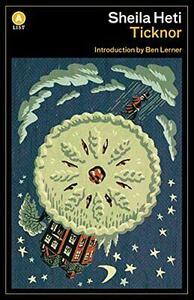Take a photo of a barcode or cover
A quick read that brings you inside the neurotic ramblings of a fictionalized version of a real American scholar.
‰ЫПI knew I was not as important as Claire, so returning after the funeral I just stood around, wanting to let him know I was there ‰ЫУ standing there with everyone else rushing about. I am not good at those sorts of arrangements, pouring drinks or holding out a hand to a woman to help her from her chair; even sitting in the corner of the parlour with the men, smoking and talking in appropriate ways. I had nothing to say in the appropriate ways. I could not help out because I no longer knew the house, not as some of the others did, or what was needed, or what they might have wanted from me. Several times, though perhaps as few as one or two, he did give me a direct, tired look, but I didn‰ЫЄt know what it meant, whether it was mostly incriminating or not. I cannot go to his house. I can tell he doesn‰ЫЄt see inside me or even care to anymore.‰Ыќ
‰ЫПExhausted and near tears, I went to the mirror. I often go to the mirror when crying, to see how I might look. I wonder whether I‰ЫЄd have any sympathy for a man such as myself. Sometimes I feel I would, and it makes me cry even harder; other times I do not and it fills me with despair ‰ЫУ well, then I weep more pitifully than before. In these ways I find I am able to enjoy myself. The pure times I spend alone are rare.‰Ыќ
‰ЫПExhausted and near tears, I went to the mirror. I often go to the mirror when crying, to see how I might look. I wonder whether I‰ЫЄd have any sympathy for a man such as myself. Sometimes I feel I would, and it makes me cry even harder; other times I do not and it fills me with despair ‰ЫУ well, then I weep more pitifully than before. In these ways I find I am able to enjoy myself. The pure times I spend alone are rare.‰Ыќ
Two stars look really "bad," but the Goodreads definition is "it was okay." That's really how I felt about Ticknor. It took me many, many, many tries over several years to get into this book because my brain kept puzzling out "you" vs. "I." Turns out it's basically the same person, only when "you" is addressed, it comes from a voice of criticism, or perhaps a more honest side of the narrator. However, these changes aren't noted with italics or set off in any way. You just have to catch them, and I felt that made the book unnecessarily difficult to read.
Ticknor is supposed to be the best friend from Prescott's childhood, but the whole of the book focuses on Ticknor's jealousy that Prescott has other friends as an adult, that there are numerous people at Precott's parties, and that Ticknor was not meant to be the only guest. The confusing bit in terms of Ticknor's feelings is that there are no scenes that prove Prescott was his friend. Therefore, we're taking his jealousy and his "failure" when compared to Precott's writing success at his word.
When the book finished, I was quite surprised and not entirely certain what I was meant to feel when I finished. Perhaps I was extra bemused by Ticknor because I'm so used to Heti's more whimsical fiction.
Ticknor is supposed to be the best friend from Prescott's childhood, but the whole of the book focuses on Ticknor's jealousy that Prescott has other friends as an adult, that there are numerous people at Precott's parties, and that Ticknor was not meant to be the only guest. The confusing bit in terms of Ticknor's feelings is that there are no scenes that prove Prescott was his friend. Therefore, we're taking his jealousy and his "failure" when compared to Precott's writing success at his word.
When the book finished, I was quite surprised and not entirely certain what I was meant to feel when I finished. Perhaps I was extra bemused by Ticknor because I'm so used to Heti's more whimsical fiction.
I definitely like the idea of a slim novel that essentially follows one man doing something menial and doomed while he muses on the pathetic nature of his life, and Heti’s prose is wonderful, but I’m not sure this one will stick with me.
I like the concept of this novel -- its stream of consciousness and exploration of envy and resentment, plus its lack of interest in traditional narrative -- but ultimately it never came alive for me. I wanted to get caught up in the narrator's voice, but I always felt too distanced.
challenging
Ticknor is going to a party at an old friend's house, but so much goes wrong. He leaves late, the pie is ruined, he misses the streetcar, the advertisements are overwhelming. Most of all, at some point in their pasts, his life and Prescott's (his old friend) life diverged. Now, with his humiliation looming all he can do is catalogue this divergence, obsessing over how it was that Prescott was such a success, and Ticknor nor such a failure.
This is a slim novel that is written in the first person, all of it bouncing around the overwrought head of George Ticknor. Though it seems like he constantly obsesses about his friend, I choose to be charitable and assume that this is relatively infrequent occurance, brought on by the circumstances. It has all gone wrong, which reminds him of his life, at least in comparison to his famous friend.
Heti's prose shines in the mind of George Ticknor. She effortlessly moves from past to present to imagined future. There were only a few passages at the beginning that confused me. She makes no effort to introduce the narrator, allowing his muddled mind to introduce itself in time. Which is very effective and helps the reader to get acquainted with Ticknor in an organic sort of way. The book doesn't feel like a book. You feel like these thoughts are actual thoughts, not sentences composed to look like thoughts but also obey a narrative order. This leaves a bit of work for the reader but not too much.
If the novel was any longer (thank you Sheila Heti for resisting the urge to compose an epic) it would've been boring and confusing. This is manageable and entertaining. We get one trip to one party; but it becomes a symbol for the general progression of the narrator's life. In the end you don't want to be like Ticknor, but he is not unsympathetic. I think this style of resentment is something we are all guilty of, or at the very least capable of. This universal quality is what makes it so funny.
This is a slim novel that is written in the first person, all of it bouncing around the overwrought head of George Ticknor. Though it seems like he constantly obsesses about his friend, I choose to be charitable and assume that this is relatively infrequent occurance, brought on by the circumstances. It has all gone wrong, which reminds him of his life, at least in comparison to his famous friend.
Heti's prose shines in the mind of George Ticknor. She effortlessly moves from past to present to imagined future. There were only a few passages at the beginning that confused me. She makes no effort to introduce the narrator, allowing his muddled mind to introduce itself in time. Which is very effective and helps the reader to get acquainted with Ticknor in an organic sort of way. The book doesn't feel like a book. You feel like these thoughts are actual thoughts, not sentences composed to look like thoughts but also obey a narrative order. This leaves a bit of work for the reader but not too much.
If the novel was any longer (thank you Sheila Heti for resisting the urge to compose an epic) it would've been boring and confusing. This is manageable and entertaining. We get one trip to one party; but it becomes a symbol for the general progression of the narrator's life. In the end you don't want to be like Ticknor, but he is not unsympathetic. I think this style of resentment is something we are all guilty of, or at the very least capable of. This universal quality is what makes it so funny.



